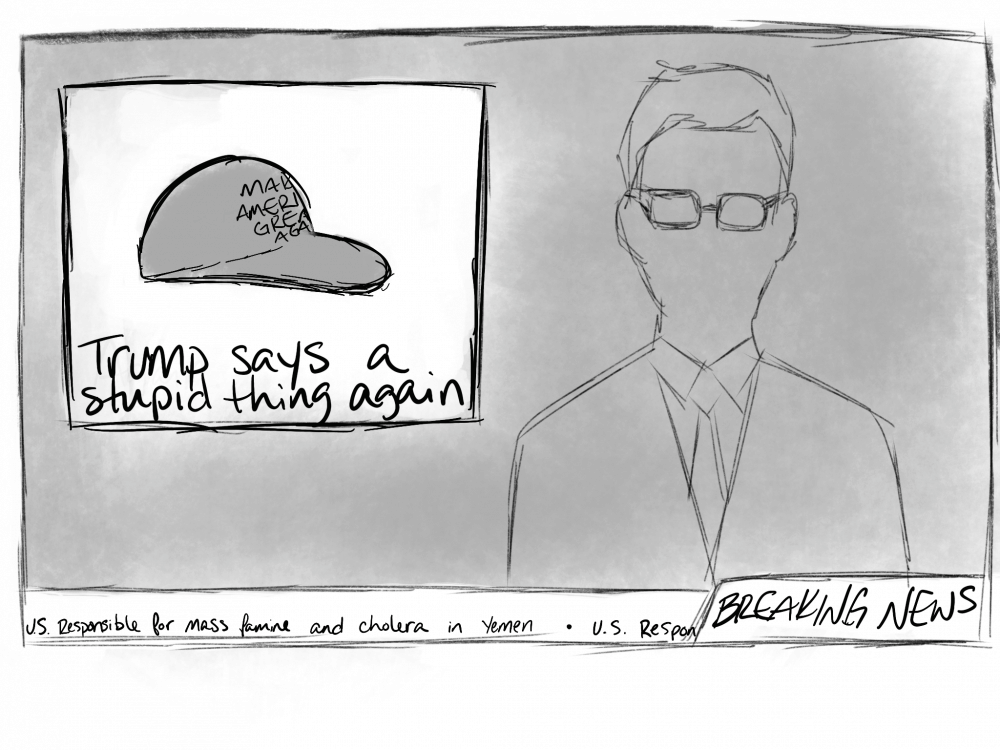Nothing attracts the attention of the news media like death and carnage. Right?
It actually depends where death and carnage is occurring, who its victims are and who is responsible for it.
A terrorist attack in the United States or another Western, predominantly white country is sure to dominate the headlines, especially if it was carried out by a Muslim. Cable news will devote ample coverage to it, with outpourings of sympathy for the victims, their families and their communities.
We might even hear stories about the victims. Maybe we learn two of them were a couple engaged to be married. Maybe we learn one victim was the parent of a newborn baby. Maybe we learn one was set to graduate college soon.
The outpouring of grief will be followed by analysis from “counterterrorism experts” about the attacker’s background and how the atrocity could have been prevented.
This pattern of coverage is not the same for all tragedies. This sort of coverage did not follow the suicide bombing in Pakistan’s Balochistan province earlier this month that killed 149 people and wounded 189 others.
Nor is it likely to follow Wednesday’s election-day bombing in Quetta, Pakistan, which killed at least 31. These attacks don’t garner as much Western media attention because the victims are brown, and they’re in a country where the Western psyche accepts constant violence and tragedy.
This disparity in attention given to atrocities in different countries is somewhat well-known in liberal circles. But the identity of the victims is not the only thing that determines the level and type of coverage; it’s also the identity of those responsible for the violence.
The U.S. news media dedicates pathetically little time to investigating and exposing the violent misdeeds of our own government and its allies.
The ultimate example of this is the war in Yemen.
How many Americans even know a civil war is occurring in Yemen? How many know it has led to the deadliest cholera outbreak in world history? How many know United Nations Secretary-General Antonio Guterres said Yemen is the world’s worst humanitarian crisis of 2018? And most importantly, how many know our government is one of the war’s primary actors?
The U.S. and its Western allies have played a crucial, indispensable role in the intervention spearheaded by Saudi Arabia since March 2015.
Ignoring the complaints of human rights organizations such as Amnesty International and Human Rights Watch, the governments of the U.S. and the U.K. have sold massive amounts of weaponry to the Saudi government.
That weaponry has been used to devastate Yemen and push its people, already one of the poorest populations in the region, to a state of catastrophe. Over 22 million Yemenis are in need of humanitarian assistance.
The Saudi-led bombing campaign has used American weapons to repeatedly hit mosques, marketplaces, factories, medical facilities and other civilian targets. The United Nations Office of the High Commissioner for Human Rights found the U.S.-backed coalition responsible for over 10,000 documented civilian casualties in the first roughly three years of fighting — about 62 percent of those are known to have occurred in the war.
U.S. support for that coalition, under both Obama and Trump, has gone much further than just arms sales. The U.S. provides the Saudis with targeting assistance and refuels their planes in the air. The U.S. also cooperates on the ground with forces from the United Arab Emirates — forces are known to engage in torture.
These atrocities are only getting worse, as the U.S.-backed coalition attacks the port city of Hodeidah, a vital conduit for humanitarian aid.
This story should be dominating the news cycle. Instead, it’s hardly a footnote.
Fairness and Accuracy in Reporting (FAIR), a media watchdog group, found MSNBC has not aired one single segment on the war in Yemen in the past year. Over the same year, the network aired 455 segments on the Stormy Daniels scandal.
When Yemen is covered in U.S. media, the U.S. role goes unexamined. PBS’s “60 Minutes” aired a 13-minute segment on Yemen in November. The segment would have been excellent if not for the fact it didn’t contain a single mention of the U.S. role in the war.
U.S. news continues to be dominated by “Russiagate,” Trump’s tweets and other palace intrigue. The suffering of millions of Yemenis at our hands barely registers a blip.
The U.N. warns 10 million more Yemenis could face “starvation” levels of hunger by the end of the year. Is 10 million not enough? What would it take for Yemen to capture Americans’ attention?






